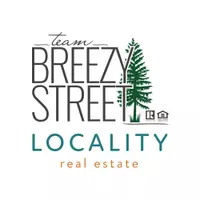VA,FHA, and Conventional Pre-Qualification vs Pre -Approval in lending

FHA Loan Arizona | When it comes to buying a home or investing in real estate using an FHA, VA or Conventional loan, understanding the mortgage process is crucial. Two terms that often get confused are pre-qualification and pre-approval. While both are important steps in securing a loan, there are distinct differences between the two.
FHA Loan Arizona
Let's start by defining pre-qualification. This is often the first step buyers take when they begin the homebuying process. Pre-qualification is an informal assessment that gives you an estimate of how much you can borrow based on the information you provide to a lender. This usually includes details about your income, debts, and assets. The lender will evaluate this information and give you an idea of the loan amount you may qualify for. It's important to note that pre-qualification is not a guarantee that you will be approved for a loan.
On the other hand, pre-approval is a more formal process. It involves a thorough evaluation of your financial information, including verification of your income, assets, and credit history. To get pre-approved, you will need to fill out a loan application and provide supporting documents, such as pay stubs, bank statements, and tax returns. The lender will then review your application, run a credit check, and determine whether you meet their criteria for a loan. If you are pre-approved, the lender will provide you with a pre-approval letter stating the amount you are approved to borrow.
So, what's the main difference between pre-qualification and pre-approval? It all comes down to the level of certainty. Pre-qualification is more of an estimate, while pre-approval carries more weight. With pre-approval, you have a clearer understanding of your purchasing power and can confidently make offers on properties within your approved loan amount. Sellers also tend to take pre-approved buyers more seriously, as it shows that you have already gone through a thorough financial evaluation.
Another key difference is the time involved. Pre-qualification is generally a quick process that can be done online or over the phone. It doesn't require as much documentation as pre-approval, so it can be completed within a few minutes or hours. Pre-approval, on the other hand, may take longer as it involves a more comprehensive review of your financial information. It can take several days or even weeks to receive a pre-approval letter.
Both pre-qualification and pre-approval have their benefits. Pre-qualification is a good starting point for buyers who want to get a general idea of their budget before they start house hunting. It's a useful tool for narrowing down your options and determining a realistic price range. Pre-approval, on the other hand, gives you a competitive edge in a hot real estate market. It shows sellers that you are a serious and qualified buyer, which can make your offer stand out among others.
In conclusion, pre-qualification and pre-approval are essential steps in the mortgage process. Pre-qualification provides an estimate of how much you can borrow, while pre-approval offers a more reliable assessment and carries more weight in the eyes of sellers. If you're serious about buying a home or investing in real estate, it's worth taking the time to get pre-approved. Having a pre-approval letter in hand will give you the confidence and leverage you need to make a successful purchase in today's competitive market.
Categories
Recent Posts










GET MORE INFORMATION


